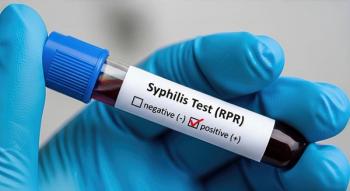
New Predictors for hepatitis B vaccine response in IBD patients
Individuals that did not respond had a lower percentage of naïve T cells compared to responders, while responders had a lower percentage of Th2 and CD4 central memory subsets before vaccination.
A new comprehensive look at patients with inflammatory bowel disease (IBD) has identified a bevy of new predictors for response to hepatitis B virus (HBV) vaccinations in data presented during the European Crohn’s and Colitis Organization (ECCO) 2023 Meeting in Copenhagen.
A team, led by Irene Soleto, Hospital Universitario de La Princesa- Instituto de Investigación Sanitaria Princesa IIS-Princesa- Universidad Autónoma de Madrid UAM- and Centro de Investigación Biomédica en Red de Enfermedades Hepáticas y Digestivas CIBERehd- Madrid, gastrointestinal unit, identified the differences between the circulating immune systems of HBV vaccine responders and non-responders among patients with IBD.
HBV Vaccines
The response rate for the general population to the HBV vaccine is approximately 90%. However, the response rate is reportedly significantly lower for patients with IBD.
In the observational clinical practice study, the investigators looked at the different factors associated with the immunogenicity of the HBV vaccine in 19 patients with IBD. Each participant was vaccinated for the first time against HBV.
The investigators divided the patients into different groups after 3 doses of the HBV vaccine at 0, 1, and 6, months as either responders (≥ 100 anti-HBV) or non-responders (< 100 anti-HBV). The team collected blood before and after vaccination to characterize the different immune subsets by flow cytometry and analyzed data manually and by high dimensional data analysis.
Response for IBD Patients
The results show those that did not respond had a lower percentage of naïve T cells compared to the responders. On the other hand, responders had a lower percentage of Th2 and CD4 central memory subsets before vaccination.
In the high dimensional data analysis, the investigators identified 22 different T-cell metaclusters and the percentage of type 2 conventional dendritic cells increased following vaccination in both responders and non-responders, leading to the identification of 11 additional submetaclusters.
The percentage of IgG class switch and IgG plasmablasts increased in the responder group after vaccination, while the percentage of IgM plasmablast increased in the non-responder group.
Finally, the investigators identified 26 different subpopulations using the high dimensional data analysis.
“The proportion of circulating T cell subsets can be used as predictor markers of the response to the HBV vaccine in IBD patients: while non-responders showed a lower percentage of naïve T cells, responders presented a lower percentage of Th2 T cells compared with their counterparts,” the investigators explained. “The analysis of the data reveals that high-resolution and high-dimensional data, show several clusters containing events that evade the canonical definition.”
This article was initially published by our sister publication HCP Live.
References
I Soleto, A C Marin, I Mora, J R Villagrasa, M Baldan-Martin, C Ramírez, D Bernardo, M Chaparro, J P Gisbert, P058 Immunological effects of hepatitis B virus vaccination in inflammatory bowel disease patients, Journal of Crohn's and Colitis, Volume 17, Issue Supplement_1, February 2023, Pages i224–i226,
Newsletter
Get the latest clinical updates, case studies, and expert commentary in obstetric and gynecologic care. Sign up now to stay informed.









